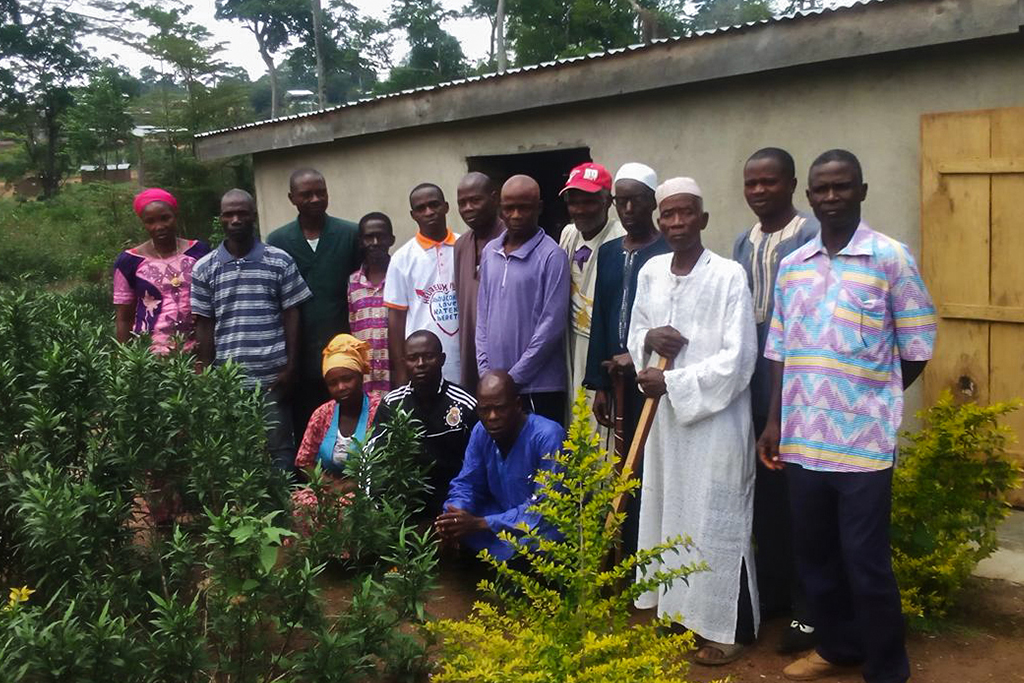
Population:
26.3 million
Evangelical population:
9.66%
People groups:
109
Unreached people groups:
36

Côte d'Ivoire
Côte d’Ivoire, or Ivory Coast, is slightly larger than New Mexico and lies on the southern coast of West Africa. Both its population and terrain can be roughly divided north to south, with Muslims concentrating in the northern savannah and highlands regions, and non-Muslims (Christians, adherents of religions associated with Christianity, and animists) occupying the southern coastal and rainforest regions.
Altogether, over 33 percent of the population is unreached. Islam has significant presence, with Muslims representing over 45 percent of the population. Syncretism with animistic indigenous religions is widespread—for example, marabouts, a type of Muslim witchdoctor, are figures of authority within Muslim communities. This culture of syncretism makes it important for churches to have sound teaching and well-trained leaders.
Historically, Côte d’Ivoire has been one of the more stable and prosperous countries in West Africa. It suffered setbacks from two civil wars since the beginning of the 21st century but has been on the recovery ever since the last war ended in 2011. Its growth rate has been one of the highest in the world over the last five years, and it has had great success as the world’s largest producer of cocoa beans.
Nevertheless, needs abound. As of 2015, over 45 percent of the population were still living below the poverty line. And as a mostly agrarian society, fewer than half of Ivorians are literate. The young dominate the population—almost 60 percent of Ivorians are under the age of 25—but they often lack opportunity. According to the CIA World Factbook, “the lack of educational attainment contributes to Cote d’Ivoire’s high rates of unskilled labor, adolescent pregnancy, and HIV/AIDS prevalence.”
A native church-planting ministry is holistically concerned with meeting the spiritual and physical needs of Muslim and animist communities. In addition to sharing the gospel of Jesus Christ through personal evangelism and evangelistic events, the ministry works with the disabled, women, and poor children in slums and jungle areas.
As people from these communities receive Christ, ministry workers personally follow up to disciple them. This ministry has now planted 15 churches and continues to train church leaders on the field through regular visits from their mobile Bible school.
Recently the ministry reported that almost the entire community in and around one sub-prefecture sent letters to the ministry’s local church asking that the gospel be brought to their people, too. They even offered land so that the ministry could build churches in their areas! Ministry workers have been seeing the local leaders come forward to give their lives to Christ, and the people of their villages along with them. The ministry now looks to train those who have professed faith so that they will become grounded in God’s Word.
Sources: Joshua Project, CIA World Factbook, Operation World, U.S. Department of State, World Atlas

How to Pray for Côte d'Ivoire
- Pray that the gospel of Jesus Christ would reach the remaining unreached peoples of Côte d’Ivoire.
- Pray that new believers would not fall into syncretism but grow in sound teaching.
- Pray that God would provide wisdom and assistance for this ministry’s outreach programs, which include training for leaders, compassion work, and agriculture programs to sustain their missionaries and provide produce for the needy.
- Pray also for a specific request from this ministry for prayer partners.
More stories from Côte d'Ivoire

Help Expand God’s Kingdom in Ivory Coast
A tribal priest who practiced witchcraft was a persecutor of Christians and the reason a native ministry was unable to plant a church in his village. But as missionaries led a revival in another town, his pregnant wife became ill and, after the doctor said he could not heal her, she was brought to them for help.

Help Plant Churches in Ivory Coast
Local missionaries from a native ministry helped a villager work on his farm, and when his family invited them to dinner at the end of the day, the workers spoke to them about God. “The whole family gave their lives to the Lord,” the ministry leader said. Many Bible studies arise from workers coming alongside villagers in this way.
